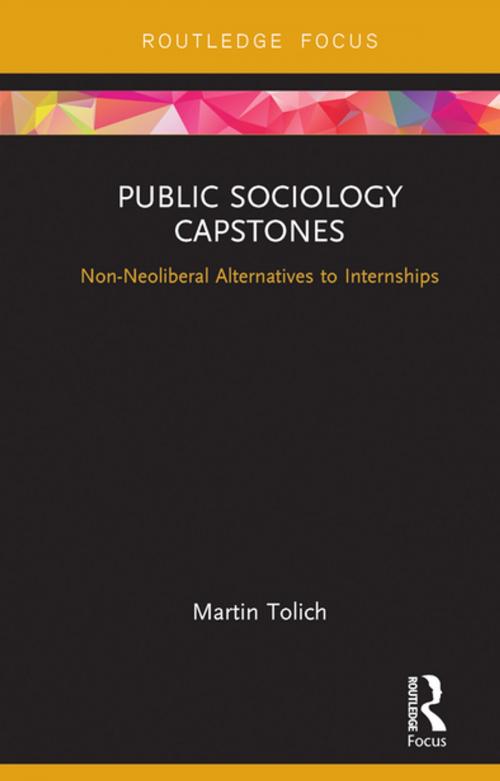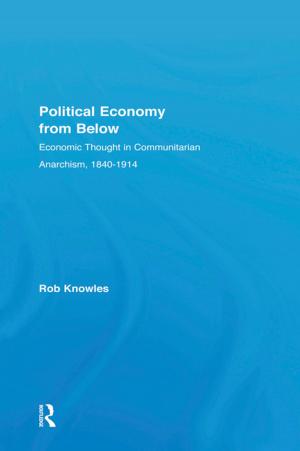Public Sociology Capstones
Non-Neoliberal Alternatives to Internships
Nonfiction, Social & Cultural Studies, Social Science, Sociology| Author: | Martin Tolich | ISBN: | 9781351118484 |
| Publisher: | Taylor and Francis | Publication: | April 17, 2018 |
| Imprint: | Routledge | Language: | English |
| Author: | Martin Tolich |
| ISBN: | 9781351118484 |
| Publisher: | Taylor and Francis |
| Publication: | April 17, 2018 |
| Imprint: | Routledge |
| Language: | English |
Social science departments, both nationally and internationally, market boundless career destinations for their graduates but fail to identify the pathways to these lucrative destinations, and appear oblivious to the social forces that threaten their existence, such as the discerning parent’s investment in their offspring’s education and mounting individual student debt. This book responds to these social forces, drawing on Michael Burawoy’s model of Public Sociology to show how a research-centred experiential internship provides opportunities for students to draw on their prior learning and realise their potential to create pathways towards employment. The author demonstrates how a specific, research-based course leading to employment with a non-government organisation or government department was evaluated and incrementally developed, giving voice to its multiple beneficiaries. Designed for university teachers, this book will appeal to those in social science departments who are using an internship, service learning or capstone model for their senior undergraduate classes.
Social science departments, both nationally and internationally, market boundless career destinations for their graduates but fail to identify the pathways to these lucrative destinations, and appear oblivious to the social forces that threaten their existence, such as the discerning parent’s investment in their offspring’s education and mounting individual student debt. This book responds to these social forces, drawing on Michael Burawoy’s model of Public Sociology to show how a research-centred experiential internship provides opportunities for students to draw on their prior learning and realise their potential to create pathways towards employment. The author demonstrates how a specific, research-based course leading to employment with a non-government organisation or government department was evaluated and incrementally developed, giving voice to its multiple beneficiaries. Designed for university teachers, this book will appeal to those in social science departments who are using an internship, service learning or capstone model for their senior undergraduate classes.















